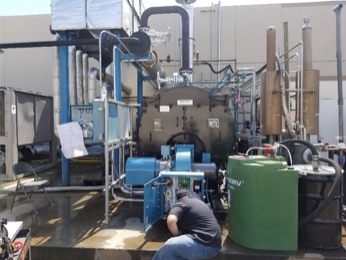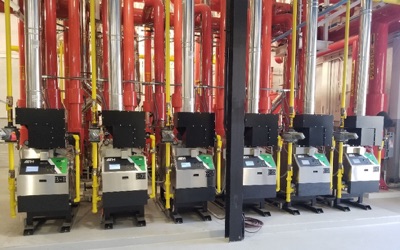Essential Efficiency Tips for Long Life
Heating and cooling is a perfect balance of equipment and science working together in different applications such as hydronics. Although the science of hydronic dates back to ancient Rome, techniques and equipment used now are much more sophisticated. Unlike the traditional warming techniques, modern day boilers are efficient and provide comfort to commercial and industrial spaces. After installing a boiler, there are several ways in which you can ensure that your commercial boiler is operating efficiently for bestresults. This is to make sure that your building is comfortable, energy-efficient and the boiler is always operating at its peak performance. Below is a guide of the best efficiency tips for your commercial/rental boiler.
REGULAR PREVENTIVE MAINTENANCE
Commercial high efficiency boilers operate underhigh pressure with extremely hot steam. That’s why you should conduct a consistent preventative maintenance from a specialist. Donot try to maintain them by yourself unless you are trained to work with the boilers to avoid major hitches. Just like any other equipment, high efficiency boilers are subject to damage. Most commercial boilers experience steam leaks, which can result in serious injuries, and can even explode causing massive property damage and death.Below are sure-fire tips to ensure your commercial boiler is working efficiently:
- Regular Cleaning – Your boiler can accumulate debris that will coat tubes with soot, scale, and other residues. Even the slightest coating residue can reduce heat transfer by 10%. The more residue builds up, the less efficient the transfer of heat, and the higher the chance of the boiler breaking down. That’s why we recommended having your commercial boiler cleaned by a professional once in a year.
- Boiler Breakdown – Minerals found in water such as sodium, magnesium, calcium, chlorides, bicarbonates, and potassium can dissolve to form a scale on the boiler tube. As this scale builds up, the heat transfer efficiency reduces significantly, and there is an increased likelihood of system failure.
- Water Quality – The quality of water used in your boiler can greatly affect how it works. Thus, you should check and test the water on a regular basis to ensure it does not contain organic matter and dissolved minerals that can cause the boiler to malfunction.
- Insulation – To ensure that your boiler maintains its peak performance, it should always be properly insulated. Insulating pipes, valves, and fittings can reduce loss of heat which increases efficiency and reduces the long-term cost of maintenance.
- Keep Accurate Maintenance & Inspection Logs – Consistent log-keeping will assist your service provider in knowing which boilers were inspected, serviced and when. Thus, when an issue arises you are able to monitor performance and easily track down even a slight reduction of performance.
DAILY COMMERCIAL BOILER INSPECTION CHECKLIST
There are parts of your high efficiency boiler that must be checked on a daily basis. Instead of waiting until a preventative maintenance has been conducted, it’s important to create a checklist that details minor issues that may escalate into a major and costly problem.
Below is a sample checklist:

- ✓ Inspect for steam leaks under and around the boiler
- ✓ Ensure no materials are obstructing the boiler
- ✓ Ensure the pressure and temperature are within the right range
- ✓ Check for boiler service or error codes on the display panel. In case of error codes, note them down and give them to your service specialist
- ✓ Remove any debris, snow, or ice on the vent termination
- ✓ Check for blockages in the air combustion openings
- ✓ Listen and take note of unusual noises and vibrations in the boiler

Recent Comments